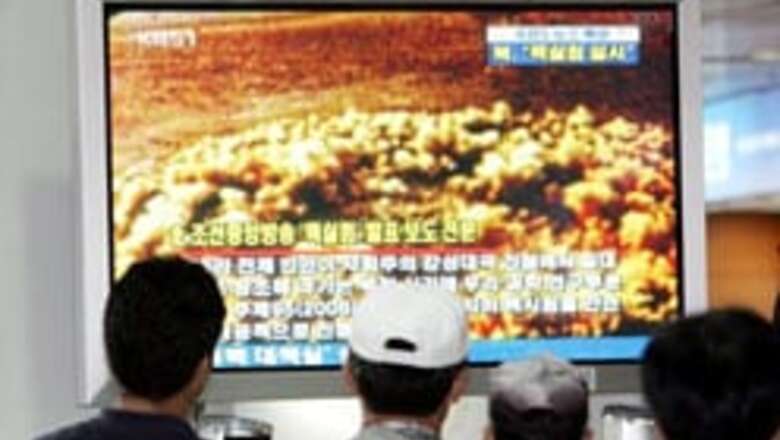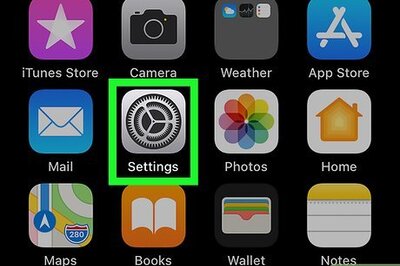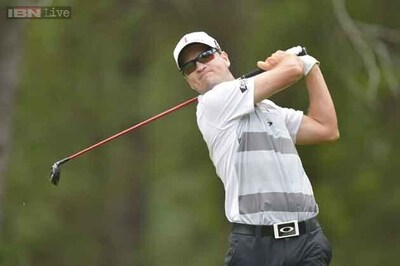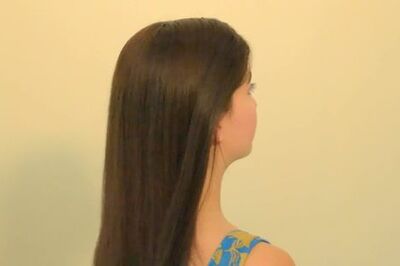
views
Washington/Tokyo: Capitals from Asia to America were making frantic checks on Wednesday after Japanese broadcaster NHK said North Korea may have conducted another nuclear test, but there was no immediate confirmation that it had.
The US Geological Survey said on Tuesday it had detected a 5.8 magnitude earthquake off the coast off northern Japan and a US official said the temblor appeared to be the source of speculation that North Korea had tested another nuclear device.
The USGS said the quake at 9:58 a.m. Japan time (2358 GMT), was about 200 miles (320 km) northeast of Tokyo, off the northeast coast of Japan's main island of Honshu, at a depth of 18.7 miles (30 km).
The earthquake may have triggered the speculation about a possible nuclear test by North Korea, which neither Japan nor the United States could confirm.
A senior Bush administration official, responding to a reporter's query about a possible second nuclear weapons test in North Korea, said that was apparently a false report.
"I've just been told it was a false alarm, an earthquake," said the official, who spoke on condition of anonymity. North Korea announced it had conducted an underground nuclear test on Monday. The possibility of a second North Korean nuclear test was first aired by Japanese national broadcaster NHK.
The report came a day after the reclusive communist state's closest ally, China, joined other powers at the United Nations calling for a tough response to its announcement of a first underground detonation.
Japanese Foreign Minister Taro Aso told a parliamentary panel that Japan had unconfirmed information that Pyongyang might conduct a second test on Wednesday, and NHK said Japanese government sources were checking reports of a tremor in North Korea.
However, Prime Minister Shinzo Abe told the same panel that Japan had no information that a test had been conducted. The White House also said it had no confirmation of a second test, while in Seoul both the president's office and a geoscience official said there was nothing to suggest one had taken place.
Ignoring warnings from its neighbours, the United States and the UN Security Council, North Korea announced on Monday that it had conducted its first-ever nuclear test.
Pyongyang said a US "threat of nuclear war and sanctions" had forced its hand. In Japan, a traditional target of North Korean hostility, Abe pressed on Wednesday for a robust international response to Pyongyang's defiance.
PAGE_BREAK
"If North Korea does not respond to our worries and if it poses a threat to peace and stability to the world, then the international community must show with attitude and actions that North Korea will be in an even more severe position," he said.
China and Russia, which both border North Korea, met other veto-holding members of the UN Security Council on Tuesday to discuss a range of sanctions proposed by the United States and Japan to pressure Pyongyang to abandon its nuclear programme.
"I think that there has to be some punitive actions," said Beijing's UN Ambassador, Wang Guangya.
"We need to have a firm, constructive, appropriate but prudent response to North Korea's nuclear threat."
Russia called the reported test a "colossal blow" to the nonproliferation regime but, like China, insisted an eventual UN resolution should not involve the use of force.
UN diplomats said China has already proposed the citing of specific provisions in the UN Charter to make sure any sanctions excluded any hint of military action. Wang, the envoys said, had also made clear his opposition to a US proposal to allow international inspections of cargo leaving or moving into North Korea.
The United States, France and Britain, the three other permanent council members, agreed tough measures were needed fast, despite the fact that only Russia has said the evidence available confirms a nuclear blast actually occurred.
No council vote has been scheduled although diplomats hope the resolution can be adopted by Friday on an array of weapons-related and financial sanctions. US Ambassador John Bolton said negotiations had made progress but differences remained.
A United States-drafted UN resolution calls for a total arms embargo, a freeze on any transfer or development of weapons of mass destruction and a ban on luxury goods, among other measures, as well as interdiction of Pyongyang's cargo.
Japan's UN Ambassador Kenzo Oshima proposed even more stringent measures in amendments to the US draft. These included banning all North Korean ships and planes from ports and imposing a travel ban on high-level Pyongyang officials.
But diplomats doubted anything beyond a possible travel ban would be approved. In Brussels, a visiting North Korea legislator defended the tests, saying: "Our country has been under severe sanctions and threats by the United States for more than 60 years.
"We had to take measures in order to obtain a nuclear deterrent against the Americans," said Ri Jong-hyok, adding that it was a "matter of life and death".


















Comments
0 comment